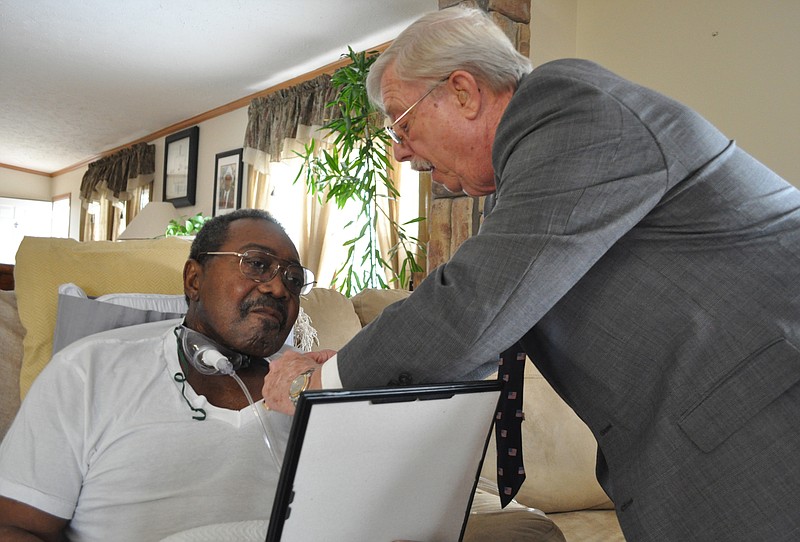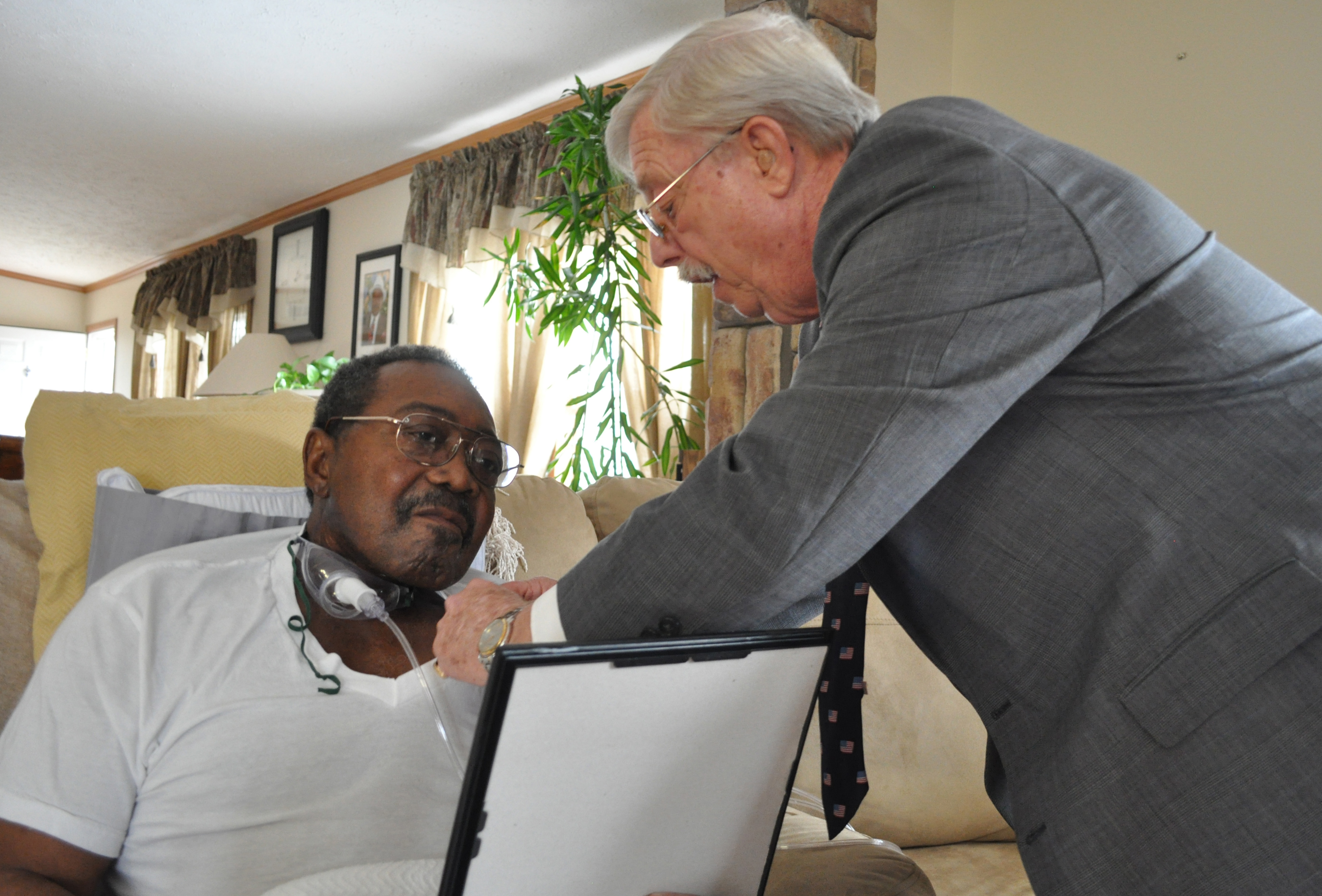William Darden spent 10 years in the Army, the next two decades working with his hands and the past dozen years fighting to breathe.
The Vietnam veteran never got a parade when he came home. Instead, the black man seeking work in the post-civil rights South just fought for his place in lines for factory and foundry jobs in Chattanooga and North Georgia, eventually landing with the Georgia Department of Transportation.
His military time took a lot from him and gave few thanks in return. But Saturday, in a small way, others hoped he knew they valued his sacrifice.
On Saturday, Sherry Campbell and a volunteer with Hospice of Chattanooga fastened a small flag pin on Darden's shirt and handed him a certificate to tell him "thank you" for his service.
Not a parade but not too late, either.
"They served us, and we want to honor them," said Campbell, who has worked with Hospice of Chattanooga in efforts to form a local veterans coalition and recognize those veterans in end-of-life care.
Hospice workers have shown appreciation to veterans in hospice unofficially for years, she said, but they began a more official process last year while finishing a federally funded veterans outreach grant.
Through most of his life, Darden was more worried about working and providing for his family than the persistent cough that worsened through the years. As years passed and sore throats turned into laryngitis and specks of blood turned to droplets coughed up when he woke in the morning, he went to doctors to find out what was wrong.
It turns out that, while he worked on the line and out in the sun and on the roads north of his Summerville, Ga., birthplace, noxious chemicals sprayed years before on the jungles of Southeast Asia worked, too, tearing at his throat and lungs.
The U.S. Department of Veterans Affairs recognized the root of his pain -- Agent Orange, a chemical used widely in the war to kill foliage and expose the enemy. The federal government paid him disability; Georgia did, too.
But he believes that GDOT herbicide sprayed around him over a decade working the roads also caused a lot of damage.
Over the 12 years since doctors took away his voice box, friends and family have helped him when he called. A binder full of photos at his rural Chickamauga, Ga., home shows visitors' smiling faces at birthdays, family reunions and other get-togethers.
In December, his daughter and her husband moved in to help. Hospice of Chattanooga workers visit to check on him. He watches TV and awaits visitors.
There is no set time left. Some days are good, some are bad, one caretaker said.
On the good days the 66-year-old remains lively. Despite having to blow air through an electric larynx to speak, he easily controls the conversation with his robotlike voice, interrupting when he wants to make a point.
Campbell said people have both universal and very personal concerns when facing death. Hospice caretakers who work with veterans, especially combat veterans, must try to understand that their needs can be different.
She said she's heard incredible stories of bravery and resilience from veterans of several of the nation's wars, but some of what Vietnam veterans faced when returning home was heartbreaking. Soldiers afraid to wear uniforms quietly changed clothes after the airplane landed and didn't talk about their service with others.
On average, Campbell said, Vietnam veterans are dying 10 years earlier than World War II veterans. Some of it is because of environmental problems such as Agent Orange, she said, but other causes come from coping mechanisms such as alcohol, cigarettes and drug use.

